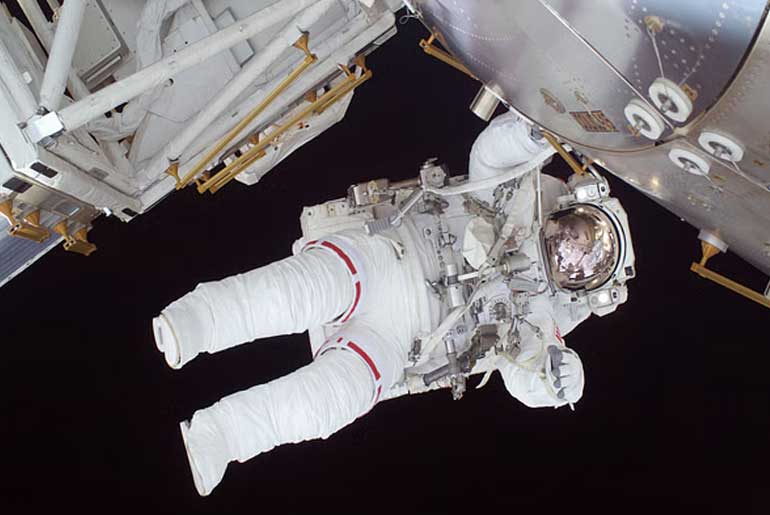The Karolinska Institutet in Sweden recently conducted a study aimed at understanding the impact of weightlessness on the immune system’s T cells. The study’s findings, which were published in the journal Science Advances, shed light on why T cells of astronauts become less active and efficient at combating infections during space travel. With upcoming human missions to the moon and Mars, it’s essential to comprehend the effects of space on the human body, especially on the immune system.
Space is a challenging environment that presents various threats to human health. One concern is the changes in the immune system observed in astronauts during space missions, which can persist even after their return to Earth. This weakened immune response can make astronauts more susceptible to infections and lead to the reactivation of dormant viruses in their bodies.
To mimic the effects of weightlessness in space, researchers employed a technique called dry immersion. This method involves using a specially designed waterbed that gives the body the sensation of being weightless. The study involved eight healthy individuals who were exposed to simulated weightlessness for three weeks. Blood samples were collected before, during, and after the experiment to analyze the T cells’ gene expression patterns.
“If astronauts are to be able to undergo safe space missions, we need to understand how their immune systems are affected and try to find ways to counter harmful changes to it,” states study leader Lisa Westerberg, principal researcher at the Department of Microbiology, Tumor and Cell Biology, Karolinska Institutet. “We’ve now been able to investigate what happens to T cells, which are a key component of the immune system, when exposed to weightless conditions.”
The results showed that the T cells underwent significant changes in gene expression after 7 and 14 days of simulated weightlessness. During this time, the T cells exhibited a more immature genetic program. The most substantial impact was observed after 14 days of simulated weightlessness. Although the T cells adapted their gene expression to the weightless conditions by the 21st day of the experiment, some changes persisted even after returning to normal gravity.
“The T cells began to resemble more so-called naïve T cells, which have not yet encountered any intruders. This could mean that they take longer to be activated and thus become less effective at fighting tumour cells and infections. Our results can pave the way for new treatments that reverse these changes to the immune cells’ genetic programme,” states Carlos Gallardo Dodd, PhD student at the Department of Microbiology, Tumor and Cell Biology, Karolinska Institutet and shared first author with researchers Christian Oertlin and Julien Record at the same department.
To further investigate the behavior and function of T cells in weightless conditions, the researchers plan to use the sounding rocket platform at the Esrange Space Centre in Kiruna, Sweden. This platform will enable them to study T cell behavior in true weightlessness and gain deeper insights into the mechanisms that lead to the observed changes.
Understanding the effects of space on the immune system is crucial for ensuring the health and well-being of astronauts during extended missions beyond Earth. This research contributes to the broader knowledge of how the human body responds to the challenges posed by space travel.
Disclaimer:
The information contained in this article is for educational and informational purposes only and is not intended as a health advice. We would ask you to consult a qualified professional or medical expert to gain additional knowledge before you choose to consume any product or perform any exercise.








